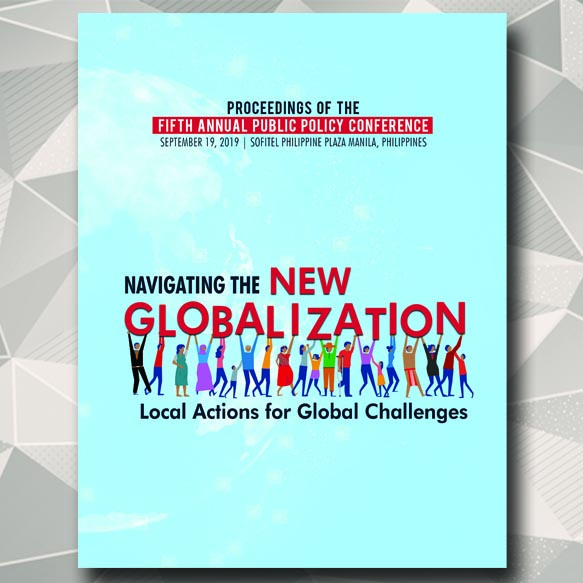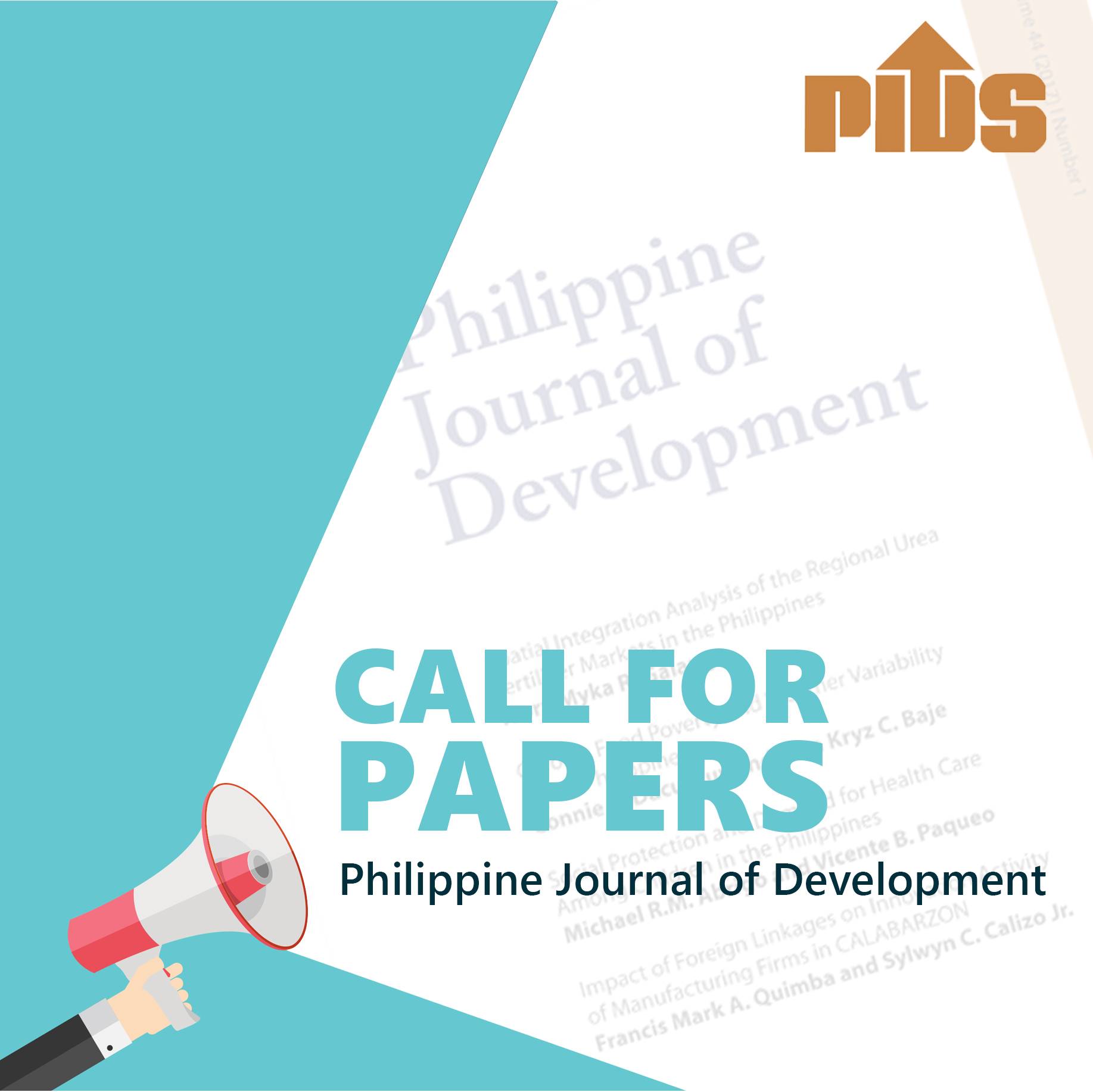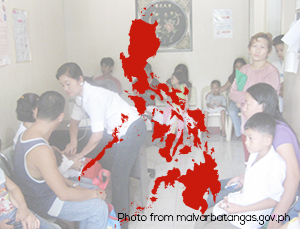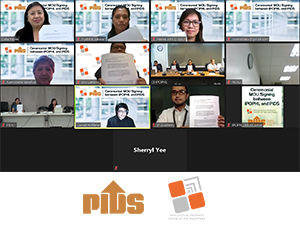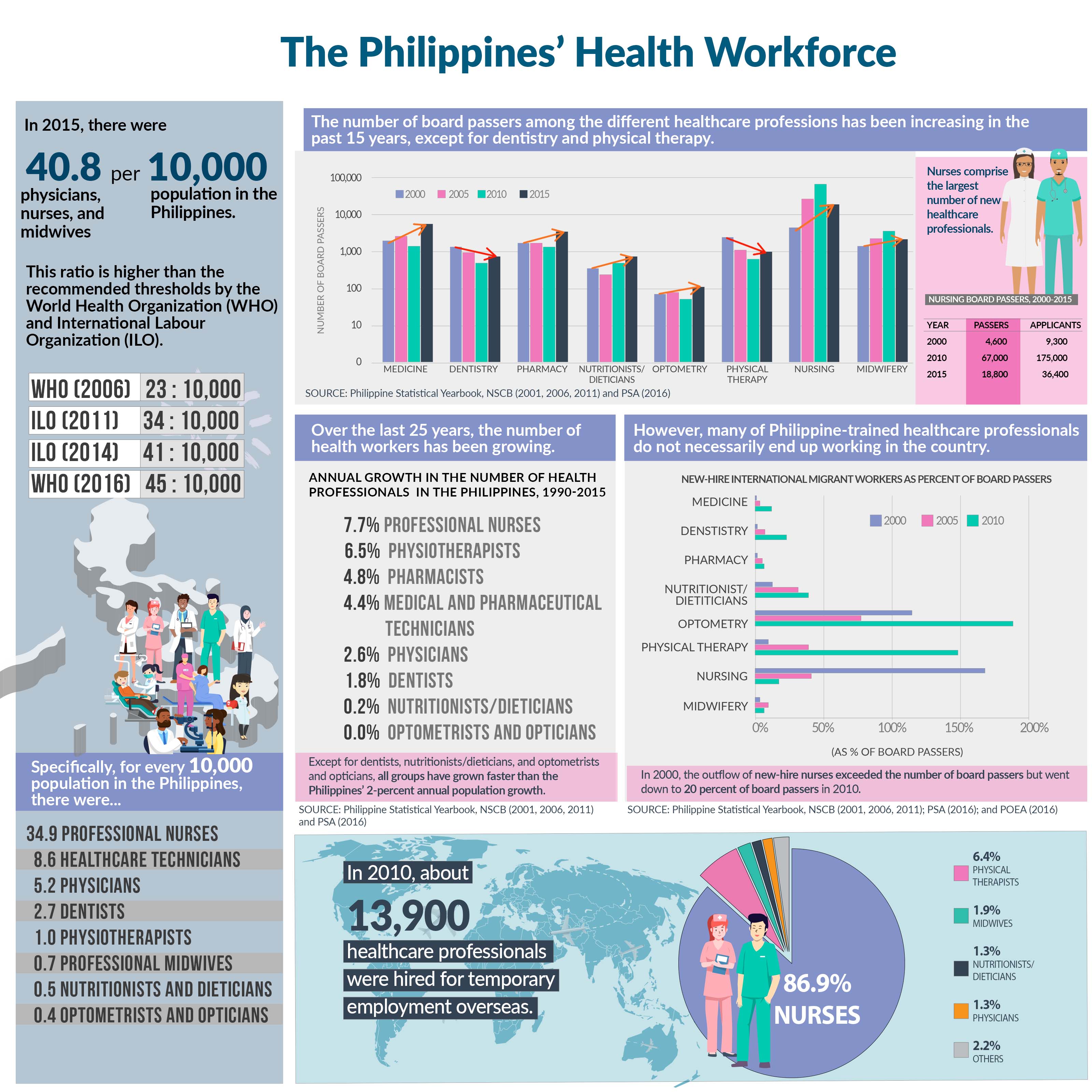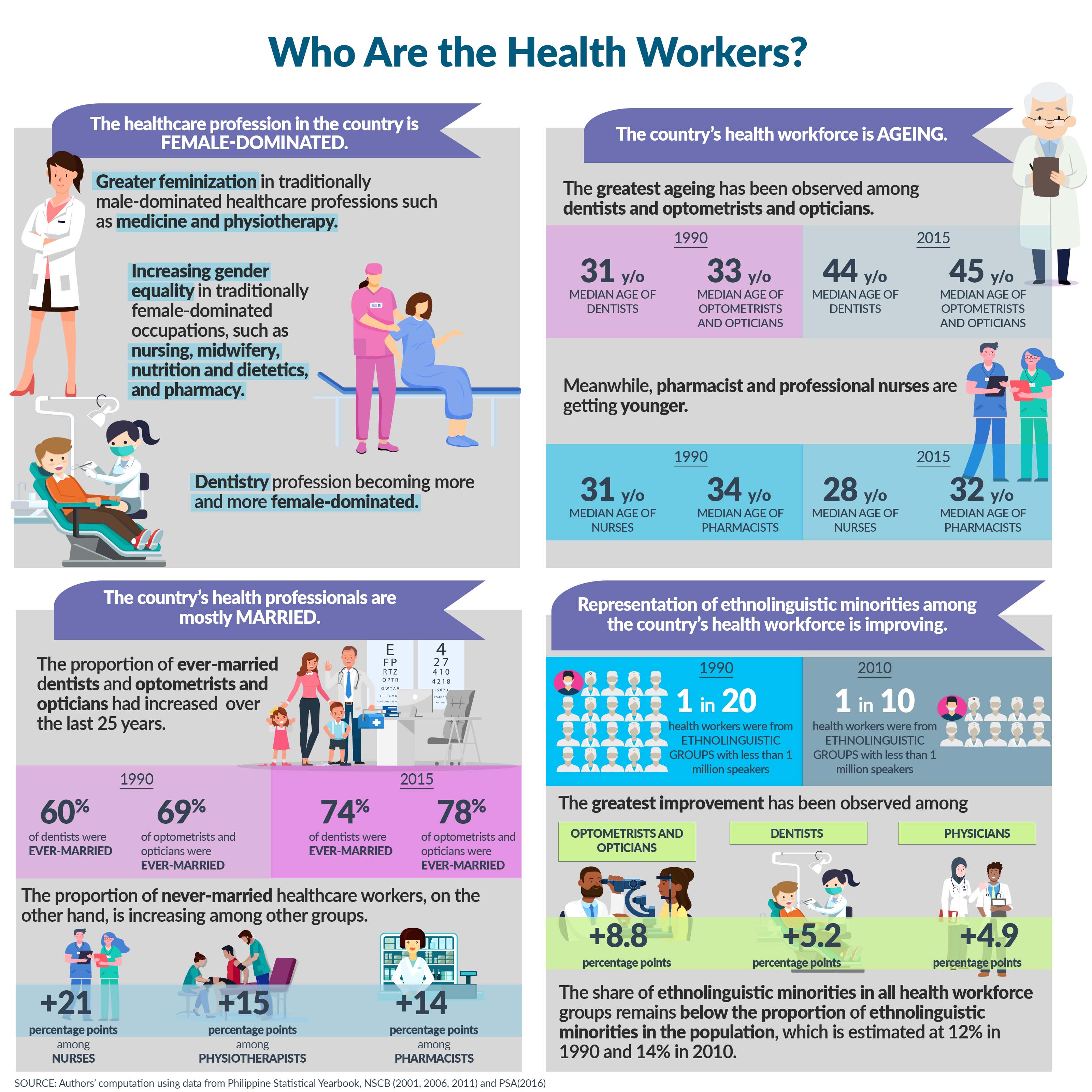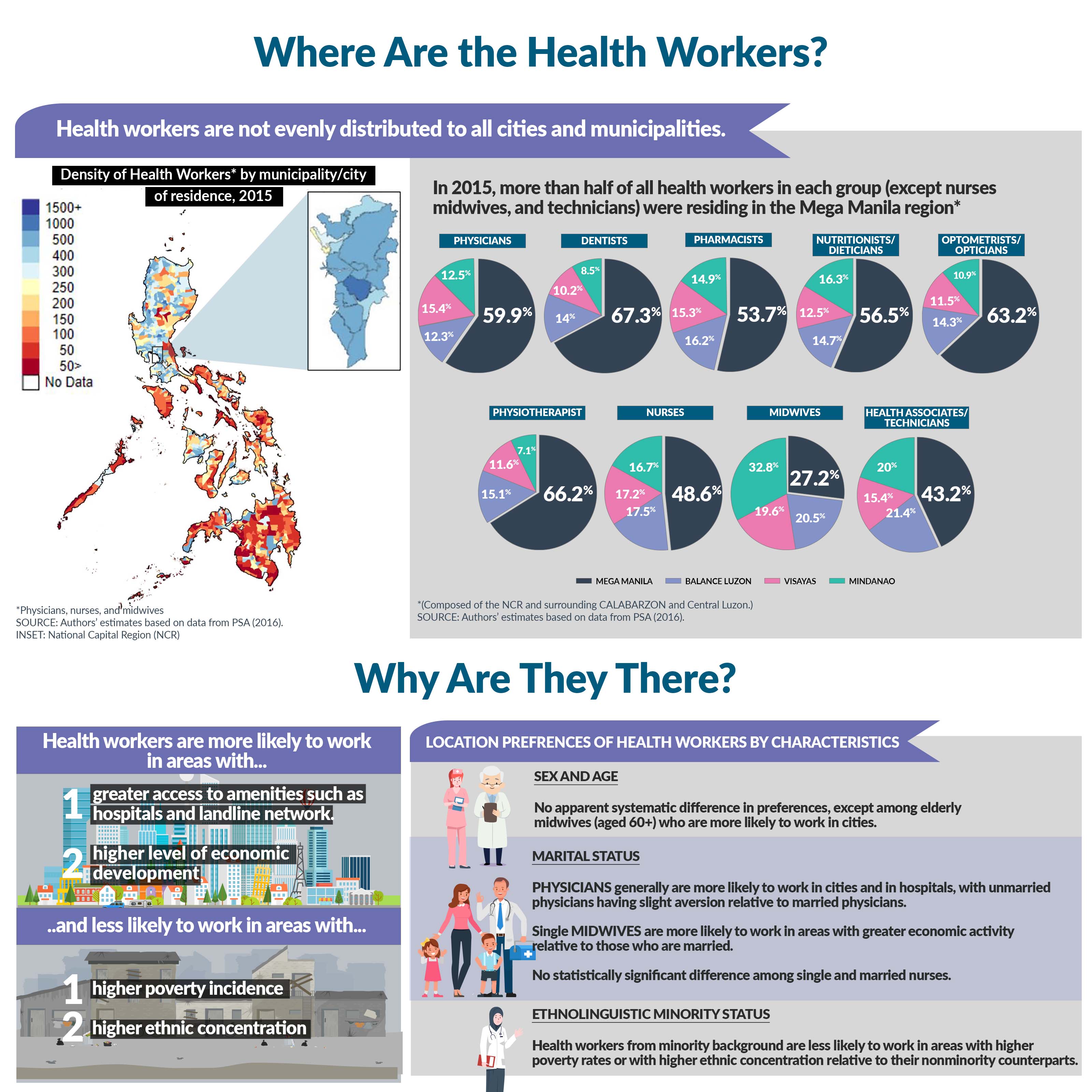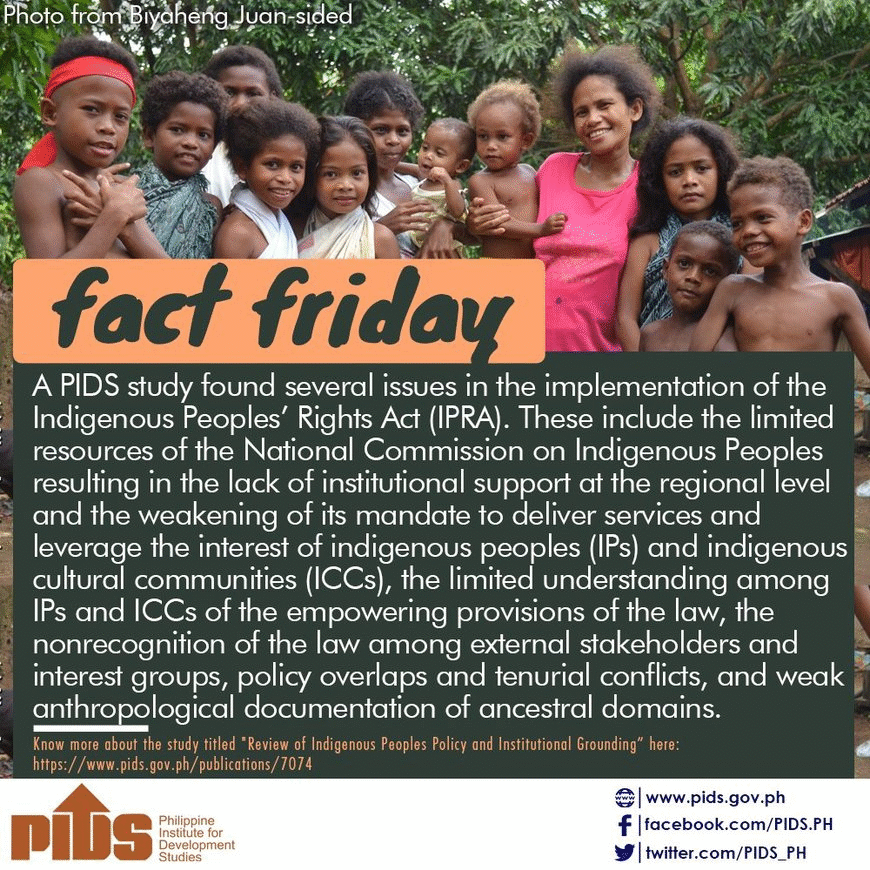Having trouble reading this email? View it in your browser. |
|||||
 |
|||||
|
|||||
BOOK
The New Globalization has reached the Philippine shores. To assist the country in crafting relevant policies on this phenomenon, the fifth Annual Public Policy Conference (APPC) became the stage for a critical analysis of the issues surrounding this new phase of growth. Among others, it emphasized the globalization's impact on Philippine trade, environment, public health, equity, social cohesion, and information sharing. PHILIPPINE JOURNAL OF DEVELOPMENT
This paper synthesizes the results and findings of the four component studies under the resurgent irrigation development assessment: assessment of national irrigation systems, assessment of communal irrigation systems, the water resource assessment, and the governance components. This synthesis is structured according to the research questions posed in the component studies along the project cycle. The first two components provided technical and institutional evaluations of selected national and communal irrigation systems across the country, from project identification, preparation, appraisal, and selection to project implementation, operations maintenance, and monitoring and evaluation. The water resources component of the study assessed irrigation service areas based on their orginal design and compared them to the actual service areas with regard to water availability, land use (including flood vulnerability), and status of irrigation facilities. The governance component, on the other hand, discussed and analyzed the governance mechanisms for the irrigation sector and the irrigation project from planning to monitoring and evaluation. Click here to download the paper.
Around 300 million indigenous peoples (IPs) have been identified across 70 countries. Fourteen million of them are located in the Philippines, with their cultural zones taking up as much as 44 percent of the country's land area. There has been much confusion regarding their identity and rights, resulting in a lengthy policy and institutional evolution in the sector. This, eventually, resulted in the passage of the Indigenous Peoples' Rights Act (IPRA) in 1997 and the establishment of the National Commission of Indigenous Peoples. It took almost a decade for the institution to issue salient guidelines and regulations under the IPRA. The delay also affected numerous opportunities in the sector, such as in leveraging indigenous cultural communities (ICCs) and their ancestral domains against encroachment. The landmark legislation safeguarded essential core rights of the IPs/ICCs. While the IPRA seemingly provides enough protection to IP/ICC rights, the protection of these rights remained contentious on the ground. The IPs/ICCs true empowerment is visible only through their claim and stewardship of ancestral domains, preservation of the integrity of their cultural heritage, and the protection of their basic human rights and social entitlements. Going forward, the IPs/ICCs must assume their rightful place as empowered stewards of their historical domains, and mainstream their interests and advocacies. The Commission, as the enabling institution, must review its bureaucratic functions and address the roots of certain weaknesses to better deliver mandated services and own its critical role in safeguarding the welfare of IPs/ICCs. Click here to download the paper.
The study looks into the disaster risk resilience of provincial governments in the Philippines using World Bank (WB) socioeconomic resiliency estimates and cross-sectional data generated by the Department of the Interior and Local Government and the Philippine Statistics Authority. Treating provincial governments as decisionmaking units (DMUs) with bureaucratic sub-units at the provincial and city/municipal levels, composite efficiency scores were generated using an integrated Data Envelopment Approach. A WB-generated socioeconomic resiliency scorecard at the provincial level provided comparative output references for the model. Results show that disaster risk reduction and management inputs at the provincial and sub-province levels greatly contributed to improving socioeconomic capacity and decreasing asset risk. However, DMU efficiency scores varied across the different sub-regional domains. A majority of provincial sub-DMUs also got higher efficiency ratings compared to their municipal/community sub-DMU counterparts, implying the need to rebalance support and disaster resilience-related initiatives at the sub-provincial levels. Click here to download the paper. |
July 30, 2020, 2–4:30PM
|
||||
|
|||||
POLICY ISSUE AT A GLANCE
This infographic attempts to answer the following questions: Who are the health workers? Where are they? Why are they there? It also flags some issues and puts forward some policy recommendations to address the uneven distribution of health workers in the country. This infographic is based on PIDS Discussion Paper titled "Who Are the Health Workers and Where Are They? Revealed Preferences in Location Decision among Healthcare Professionals in the Philippines" written by Michael R.M. Abrigo and Danica Aisa P. Ortiz, senior research fellow and former supervising research specialist, respectively, at the PIDS. To view in actual size, visit the PIDS website or the PIDS Facebook page.
FACT FRIDAY Every Friday, PIDS releases nuggets of research results culled from different PIDS studies. Here are the latest #PIDSFactFriday issues. |
|||||
Need help? Have feedback? Feel free to contact us. |
|||||
